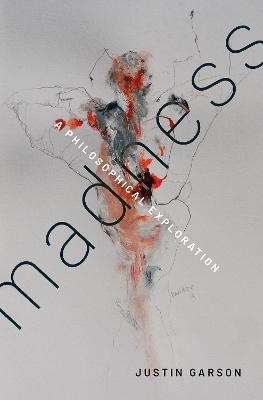
Madness
Oxford University Press Inc (Verlag)
978-0-19-761383-2 (ISBN)
- Titel nicht im Sortiment
- Artikel merken
In Madness: A Philosophical Exploration, philosopher of science Justin Garson presents a radically different paradigm for conceiving of madness and the forms that it takes. In this paradigm, which he calls madness-as-strategy, madness is neither a disease nor a defect, but a designed feature, like the heart or lungs. That is to say, at least sometimes, when someone is mad, everything inside of them is working exactly as it should and as nature intended. Through
rigorous engagement with texts spanning the classical era to Darwinian medicine, Garson shows that madness-as-strategy is not a new conception. Thus, more than a history of science or a conceptual genealogy, Madness is a recovery mission. In recovering madness-as-strategy, it leads us beyond today's dominant medical paradigm toward
a very different form of thinking and practice.
This book is essential reading for philosophers of medicine and psychiatry, particularly for those who seek to understand the nature of health, disease, and mental disorder. It will also be a valuable resource for historians and sociologists of medicine for its innovative approach to the history of madness. Most importantly, it will be useful for mental health service users, survivors, and activists, who seek an alternative and liberating vision of what it means to be mad.
Justin Garson is a professor of philosophy at Hunter College and The Graduate Center, City University of New York. His main interest is in exploring how biology can help us make progress on traditional problems of human nature. He has authored or co-authored dozens of scholarly articles on the philosophy of science, the history of neuroscience and medicine, and biodiversity conservation. He is the author of The Biological Mind: A Philosophical Introduction (Routledge, 2015; second edition forthcoming), A Critical Overview of Biological Functions (Springer, 2016), and What Biological Functions Are and Why They Matter (Cambridge University Press, 2019).
Introduction
Part I: The Dual Teleology of Madness
Chapter 1: Hippocrates and the Magicians
Chapter 2: The Suffocation of The Mother
Chapter 3: Madness as Misuse and Defect
Chapter 4: An Infinitely Wise Contrivance
Part II: Madness and The Sound Mind
Chapter 5: A Temporary Surrogate of Reason
Chapter 6: The Mountebanks of The Mind
Chapter 7: The Miracle of Sanity
Chapter 8: Delusion as Castle and Refuge
Chapter 9: A Salutary Effort of Nature
Chapter 10: The Biologization of Kant
Part III: Madness and The Goal of Evolution
Chapter 11: The Strategies of Wish-Fulfillment
Chapter 12: Madness as Creativity and Conquest
Chapter 13: From Retreat to Resistance
Chapter 14: Confronting the Wounded Animal
Chapter 15: The Darwinization Of Madness
| Erscheinungsdatum | 12.03.2022 |
|---|---|
| Verlagsort | New York |
| Sprache | englisch |
| Maße | 162 x 242 mm |
| Gewicht | 572 g |
| Themenwelt | Geisteswissenschaften ► Philosophie ► Geschichte der Philosophie |
| Geisteswissenschaften ► Philosophie ► Philosophie der Neuzeit | |
| Geisteswissenschaften ► Psychologie ► Allgemeine Psychologie | |
| Medizin / Pharmazie ► Medizinische Fachgebiete ► Medizinethik | |
| Medizin / Pharmazie ► Medizinische Fachgebiete ► Psychiatrie / Psychotherapie | |
| Studium ► Querschnittsbereiche ► Geschichte / Ethik der Medizin | |
| Naturwissenschaften | |
| Sozialwissenschaften | |
| ISBN-10 | 0-19-761383-7 / 0197613837 |
| ISBN-13 | 978-0-19-761383-2 / 9780197613832 |
| Zustand | Neuware |
| Informationen gemäß Produktsicherheitsverordnung (GPSR) | |
| Haben Sie eine Frage zum Produkt? |
aus dem Bereich


